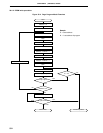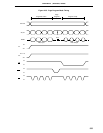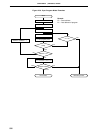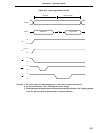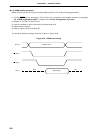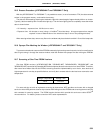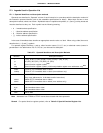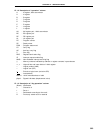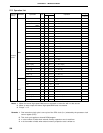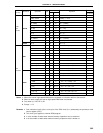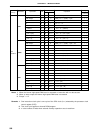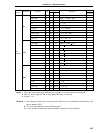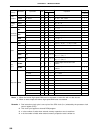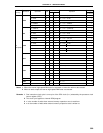
562
CHAPTER 27 INSTRUCTION SET
27.1 Legends Used in Operation List
27.1.1 Operand identifiers and description methods
Operands are described in “Operand” column of each instruction in accordance with the description method of
the instruction operand identifier (refer to the assembler specifications for detail). When there are two or more
description methods, select one of them. Alphabetic letters in capitals and symbols, #, !, $ and [ ] are key words and
must be described as they are. Each symbol has the following meaning.
• # : Immediate data specification
• ! : Absolute address specification
• $ : Relative address specification
• [ ] : Indirect address specification
In the case of immediate data, describe an appropriate numeric value or a label. When using a label, be sure to
describe the #, !, $, and [ ] symbols.
For operand register identifiers, r and rp, either function names (X, A, C, etc.) or absolute names (names in
parentheses in the table below, R0, R1, R2, etc.) can be used for description.
Table 27-1. Operand Identifiers and Description Methods
Identifier Description Method
r X (R0), A (R1), C (R2), B (R3), E (R4), D (R5), L (R6), H (R7),
rp AX (RP0), BC (RP1), DE (RP2), HL (RP3)
sfr Special-function register symbol
Note
sfrp Special-function register symbol (16-bit manipulatable register even addresses only)
Note
saddr FE20H-FF1FH Immediate data or labels
saddrp FE20H-FF1FH Immediate data or labels (even address only)
addr16 0000H-FFFFH Immediate data or labels
(Only even addresses for 16-bit data transfer instructions)
addr11 0800H-0FFFH Immediate data or labels
addr5 0040H-007FH Immediate data or labels (even address only)
word 16-bit immediate data or label
byte 8-bit immediate data or label
bit 3-bit immediate data or label
RBn RB0 to RB3
Note Addresses from FFD0H to FFDFH cannot be accessed with these operands.
Remark For special-function register symbols, refer to Table 5-6. Special-Function Register List.



